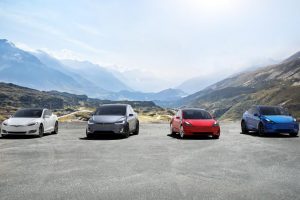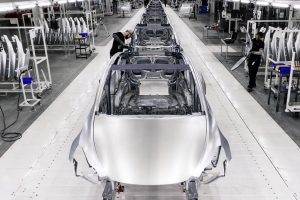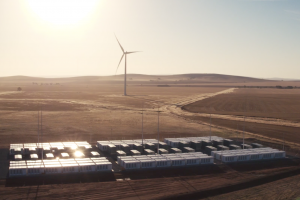- 🚗 Hertz continues to face losses from its electric vehicle investment and plans to sell off more EVs from its fleet.
- 💸 Hertz reported a $195 million charge to vehicle depreciation to write down the EVs held for sale in Q1 2024.
- ⬆️ Vehicle depreciation as a whole increased by $588 million, with $119 million related to EVs held for sale.
- 😲 Hertz’s decision to buy a massive number of EVs, particularly from Tesla, did not go as expected due to price changes and higher maintenance costs.
- 💥 Hertz reported a net income loss of $392 million in Q1 2024, compared to $126 million during the same period last year.
- 📉 Hertz shares were down over 24 percent after the earnings report.
- ⤵️ The company plans to dump 30,000 EVs from its fleet this year, an increase from the initial plan of 20,000 units.
Hertz, the renowned car rental company, made headlines in 2021 when it announced its ambitious plan to invest a staggering $4.2 billion in Tesla electric vehicles (EVs). This bold move was lauded by many as a significant step towards a more sustainable future in the automotive industry. However, recent developments have cast a shadow over Hertz’s EV endeavor, raising questions about the viability of their strategy.
The Initial Excitement
Hertz’s decision to embrace EVs on such a massive scale was a game-changer in the rental car industry. The company’s partnership with Tesla, coupled with its expansion into other EV manufacturers like Polestar, signaled a commitment to reduce emissions and cater to the growing demand for eco-friendly transportation options.
The announcement was accompanied by a star-studded advertising campaign featuring Tom Brady, further amplifying the excitement surrounding Hertz’s green initiative. Customers and environmentalists alike applauded the move, anticipating a seamless transition towards a more sustainable mobility solution.
The Reality Check
Fast forward to 2024, and the picture looks vastly different. Hertz’s first-quarter earnings report revealed a sobering truth: the company is grappling with substantial losses from its EV investment. The company reported a staggering $195 million charge to vehicle depreciation to write down the EVs held for sale, further exacerbating the financial strain.
But that’s not all. Vehicle depreciation as a whole increased by a whopping $588 million, with $119 million directly attributable to the EVs held for sale. These figures paint a concerning picture of the challenges Hertz has faced in its foray into the EV market.
The Root Causes
So, what went wrong? According to Hertz, the primary culprits were price changes and higher-than-expected maintenance costs. Tesla’s dynamic pricing strategy, which saw significant fluctuations throughout 2023, proved to be a formidable obstacle. Additionally, the company underestimated the maintenance requirements and associated costs of operating a large EV fleet.
Stephen Scherr, who was the CEO when Hertz made the EV purchase from Tesla, acknowledged the miscalculation in October 2023, stating, “We have an opportunity to buy these cars now at roughly a third less than where we bought the initial component of our Teslas. We’re ultimately better buyers at a falling price, and the margin composition on those cars will be better.”
However, Scherr’s optimism was short-lived, as he stepped down from his role as CEO in March 2024, just months before the dismal Q1 earnings report.
The Way Forward
In response to the mounting losses, Hertz has announced plans to dump an additional 10,000 EVs from its fleet, bringing the total number of EVs slated for sale to a staggering 30,000 units. This decision comes after the company had initially planned to offload 20,000 EVs in January.
While this move may provide some short-term relief by reducing the financial burden of maintaining an underperforming EV fleet, it raises concerns about Hertz’s long-term commitment to sustainability and its ability to adapt to the rapidly evolving automotive landscape.
A Lesson in Risk Management
Hertz’s EV venture serves as a cautionary tale for companies venturing into new and uncharted territories. The automotive industry’s transition towards electrification is undoubtedly a pivotal moment, but navigating this shift requires meticulous planning, risk assessment, and a deep understanding of the market dynamics.
Hertz’s experience underscores the importance of conducting comprehensive feasibility studies, thoroughly evaluating maintenance costs, and anticipating potential pricing fluctuations. Additionally, having contingency plans in place to mitigate unforeseen circumstances is crucial for minimizing financial risks and ensuring long-term sustainability.
The Road Ahead: Resilience and Adaptation
Despite the setbacks, Hertz’s decision to embrace EVs remains a commendable effort towards a more sustainable future. The company’s willingness to take risks and pioneers new initiatives is a testament to its commitment to innovation and environmental responsibility.
As the automotive industry continues to evolve, Hertz will undoubtedly face new challenges and opportunities. The key to success lies in learning from past mistakes, adapting to market changes, and fostering a culture of continuous improvement.
By leveraging its vast experience and industry expertise, Hertz has the potential to emerge stronger and more resilient, paving the way for a more sustainable and environmentally conscious car rental industry.





